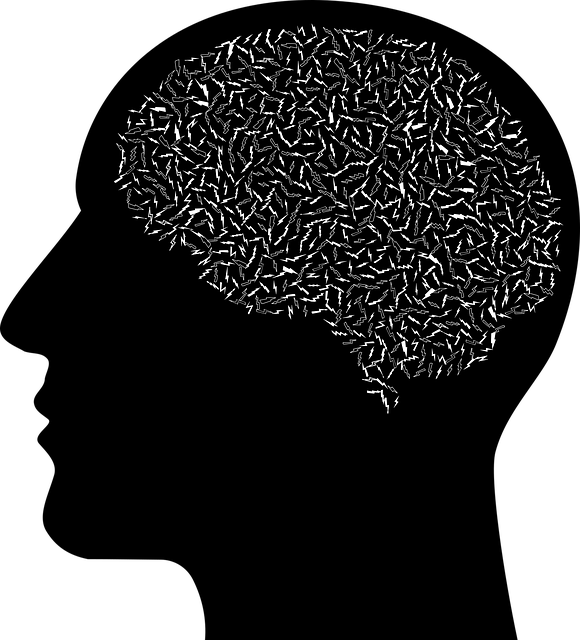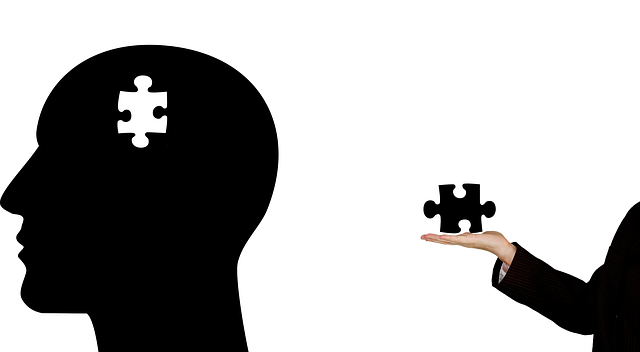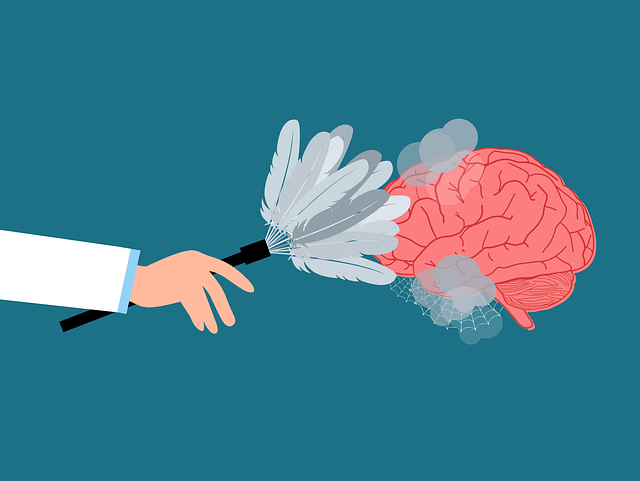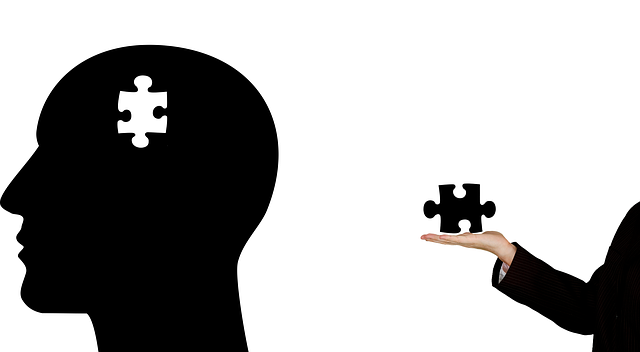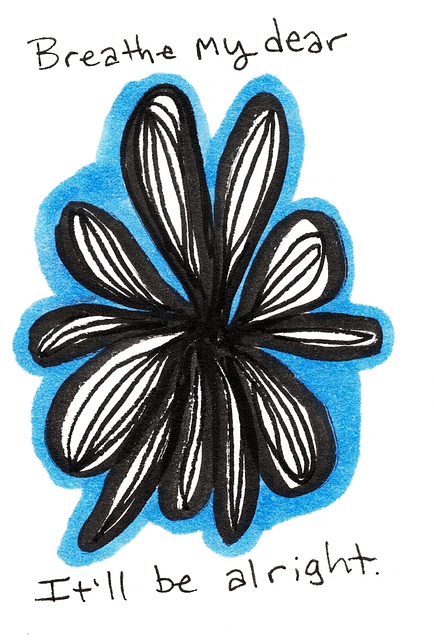Social skills training in therapy is a transformative tool for adolescent teens facing mental health challenges, especially those with spiritual-religious concerns. By teaching empathy, communication, and mood management, this approach helps teens strengthen relationships, improve mental wellness, and develop healthier coping mechanisms. It's particularly beneficial for addressing peer pressure, emotional regulation, and self-expression during adolescence, while also integrating spiritual or religious beliefs into therapy offers solace and meaning through faith. Tailored mental health education programs, including crisis intervention and risk management planning, are crucial in managing adolescent teens' mental health, especially those dealing with spiritual-religious issues. This holistic approach not only enhances social competence but contributes to overall well-being, offering long-lasting benefits that extend far beyond the therapy room.
Social skills training is a powerful tool for improving mental health, especially among adolescent teens. This article explores how understanding social interactions can positively impact young minds, addressing challenges unique to this age group. We delve into strategies that incorporate spiritual and religious beliefs in therapy, offering effective solutions. Additionally, it highlights long-term benefits and support systems for sustained growth, with a focus on providing tailored care for adolescents navigating mental health conditions while integrating their spiritual-religious perspectives in therapeutic settings.
- Understanding Social Skills and Their Impact on Mental Health
- Identifying Challenges: Social Interaction and Adolescent Teens
- Incorporating Spiritual-Religious Beliefs in Therapy
- Strategies for Effective Social Skills Training
- Long-Term Benefits and Support for Continued Growth
Understanding Social Skills and Their Impact on Mental Health

Social skills are essential for navigating relationships and connecting with others, which significantly impacts mental health and overall well-being. For individuals dealing with mental health conditions, especially during adolescence, understanding and honing these skills can be transformative. Adolescent teens often face unique challenges related to self-expression, peer pressure, and emotional regulation, often exacerbated by spiritual or religious issues.
Therefore, social skills training in therapy becomes a powerful tool. It involves teaching and practicing empathy-building strategies, effective communication, and mood management techniques. By fostering these abilities, teens can enhance their relationships, improve their mental wellness, and develop healthier coping mechanisms. This approach is particularly beneficial for those exploring therapy for adolescent teens with spiritual-religious concerns, as it promotes a sense of belonging and understanding within their peer groups.
Identifying Challenges: Social Interaction and Adolescent Teens

Adolescent teens face unique challenges when it comes to social interaction due to various factors, including rapid developmental changes and emerging identities. For those dealing with mental health conditions, these dynamics can be even more complex. Social skills training becomes a vital tool in helping teens navigate their social environments and build healthy relationships. This is especially crucial for adolescents experiencing spiritual-religious issues, as peer interactions often play a significant role in shaping their beliefs and sense of community.
The challenges faced by teen clients in therapy may include difficulties in initiating conversations, maintaining eye contact, or interpreting social cues, which can lead to feelings of isolation and anxiety in social settings. Through tailored mental health education programs designed to address these specific needs, teens learn valuable skills for managing stress, improving communication, and fostering meaningful connections. Incorporating self-care routine development into the therapy process enables adolescents to better cope with stressors and promotes overall well-being.
Incorporating Spiritual-Religious Beliefs in Therapy

Incorporating spiritual-religious beliefs into therapy can significantly benefit adolescent teens dealing with mental health conditions. Many young individuals find solace and meaning through their faith, which can be a powerful tool in the therapeutic process. Therapists who recognize and respect these spiritual-religious issues can create a more inclusive and supportive environment, fostering open communication and encouraging clients to explore coping mechanisms that align with their values.
This approach is particularly relevant when addressing crisis intervention guidance, as it allows for a holistic understanding of the individual’s life and challenges. By integrating faith into therapy, mental illness stigma reduction efforts can also be strengthened, promoting a sense of acceptance and encouraging teens to seek help without fear of judgment. Moreover, risk management planning for mental health professionals becomes easier when they are equipped to handle diverse belief systems, ensuring that every client receives personalized care tailored to their unique needs.
Strategies for Effective Social Skills Training

Social Skills Training plays a pivotal role in managing mental health conditions, especially among adolescent teens grappling with spiritual-religious issues. Effective programs incorporate a multi-faceted approach, combining therapy for adolescent teens tailored to their age and developmental stage with evidence-based communication strategies. Facilitators should create safe spaces where participants feel comfortable expressing themselves, fostering open dialogue and empathy. Role-playing scenarios can be particularly beneficial, allowing individuals to practice new skills in simulated social interactions.
Beyond individual growth, integrating crisis intervention guidance into training empowers teens to handle potential triggers or stressful situations. This includes teaching them to recognize early warning signs of emotional distress and implement coping mechanisms. Moreover, incorporating burnout prevention strategies for healthcare providers, such as stress management techniques and self-care practices, can help participants maintain resilience over time. These holistic approaches not only enhance social competence but also promote overall well-being, making social skills training a valuable tool in the broader mental health care landscape.
Long-Term Benefits and Support for Continued Growth

Social skills training offers long-term benefits for individuals with mental health conditions, particularly adolescents and teens grappling with spiritual or religious issues. Beyond immediate improvements in communication and interaction, this type of therapy equips them with resilience and coping mechanisms that foster better relationships throughout their lives. It empowers them to navigate social situations with confidence, reducing feelings of isolation and promoting a sense of belonging.
Moreover, the support provided during training extends beyond the therapeutic setting, enabling individuals to apply learned skills in various contexts. This continuous growth is enhanced by cultural sensitivity in mental healthcare practice, which ensures that treatment aligns with the individual’s unique background and beliefs, including spiritual or religious perspectives. Incorporating Mental Health Policy Analysis and Advocacy into care plans also empowers clients to advocate for their needs, contributing to a more inclusive and supportive mental health ecosystem. Effective risk assessment for mental health professionals further safeguards individuals during this journey of self-improvement.
Social skills training, incorporating spiritual-religious beliefs where relevant, offers a promising therapy for adolescent teens struggling with mental health conditions. By addressing specific challenges in social interaction and fostering healthy communication strategies, this approach can lead to significant long-term benefits. Incorporating spiritual or religious elements into the therapeutic process can provide additional support and meaning, enhancing the overall effectiveness of treatment for individuals navigating their mental health journey.
